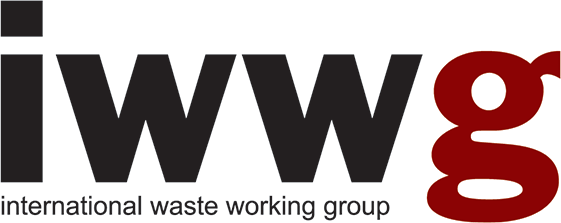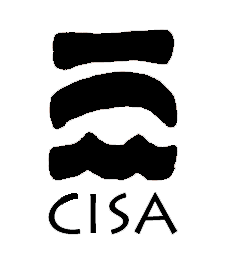CLOSING THE LOOP: THE CHALLENGES OF REGULATION IN MUNICIPAL SOLID WASTE MANAGEMENT
- Available online in Detritus - Volume 05 - March 2019
- Pages 3-10
Released under CC BY-NC-ND
Copyright: © 2018 CISA Publisher
Abstract
Regulation has a profound impact on markets and in recent decades it has also been perceived as a solution to a wide range of environmental problems. However, regulation may also induce barriers and undesirable effects. In recent years, there has been a rise in awareness for the need to monitor, evaluate and supervise regulation itself, its effectiveness and its associated processes via Regulatory Impact Analysis and Assessment (RIA). One of the significant environmental challenges characterized by extensive regulation is Municipal Solid Waste (MSW) management. MSW is, on the one hand, a significant environmental threat and an economic and social challenge to manage, but, on the other hand, a significant key factor in achieving sustainable production and a circular economy. Understanding the interrelationships between regulation and the MSW market, with its various stakeholders, is crucial to close the MSW loop and achieving a sustainable economy. This paper describes the analysis of the MSW market in Israel that provided an insight and understanding of the impact of regulation on this market and its various stakeholders. The market analysis constituted a focal stage in performing a full RIA of the MSW market in Israel. Findings show that regulation itself may create difficulties and barriers that prevent the implementation of economically and environmentally efficient solutions and obstacles in achieving a circular economy. It is also concluded that an ongoing monitoring and supervision of regulatory processes are of great importance and that RIA should be elaborated continuously.Keywords
Editorial History
- Received: 28 Jun 2018
- Revised: 10 Dec 2018
- Accepted: 10 Dec 2018
- Available online: 08 Mar 2019
References
Adelle, C., Weiland, S., Dick, J., González, O. D., Marquardt, J., Rots, G., Wübbeke, J., Zasada, I. (2014). Regulatory Impact Assessment - A Survey of selected and Emerging Economies, LIAISE discussion paper
Agamuthu, P., (2013). Landfilling in developing countries. Waste Management & Research 31: 1-2
Arndt, C., Custance, A., Baker, T. Q., & Schultz, R. (2015). 2015 Indicators of Regulatory Policy and Governance. Available at: http://www.oecd.org/governance/regulatory-policy/WP1_Design-Methodology-Key-Results.pdf (accessed 17.11.18)
Ayalon, O., Avnimelech, Y., & Shechter, M. (1999). Issues in designing an effective solid waste policy: the Israeli experience. The market and the environment: The effectiveness of market based instruments for environmental reform. Edward Elgar, UK, 389-406
Ayalon, O., Avnimelech, Y., & Shechter, M. (2000). Alternative MSW treatment options to reduce global greenhouse gases emissions–the Israeli example. Waste Management and Research, 18(6), 538-544
Broitman ,D., Ayalon, O., Kan, I. (2012). One size fits all? An assessment tool for solid waste management at local and national levels, Waste Management 32: 1979-1988
Central Bureau of Statistics (2017). Population & Demography. [In Hebrew.] Available at: http://www.cbs.gov.il/reader/?MIval=cw_usr_view_SHTML&ID=705 (accessed 17.11.18)
Coman, A. (2008). ARENA Mapping: An effective strategy focusing tool, Human System Management 27(4): 305-312
Coman, A., & Ronen, B. (2002). Focused-arena-strategy-fast: Transforming Strategic Core-competences and Root-problems Into Action. Israel Institute of Business Research
Coman, A., Ronen, B. (2009). Focused SWOT: diagnosing critical strengths and weaknesses, International Journal of Production Research 47(20): 5677-5689
Daskal, S., Ayalon, O., & Shechter, M. (2018). The state of municipal solid waste management in Israel. Waste Management & Research, 0734242X18770248.
Di Maria, F., Mersky, R.L., Daskal, S., Ayalon, O., Ghosh, S.K. (2017). Preliminary comparison among recycling rates for developed and developing countries: The case of India, Israel, Italy and USA. In: Proceedings of 7th IconSWM, Hyderabad, India, 15-17 December
EC-European Commission. (2016). Circular Economy Strategy: Closing the loop-An EU action plan for the Circular Economy. Available at: http://eur-lex.europa.eu/legal-content/EN/TXT/?uri=CELEX:52015DC0614 (accessed 17.11.18)
Eshet, T., Baron, M., Ayalon, O., Shechter, M. (2007). Measuring externalities of waste transfer stations in Israel using hedonic pricing, Waste Management 27: 614-625
Garber, A. M., & Phelps, C. E. (1997). Economic foundations of cost-effectiveness analysis, Journal of Health Economics 16: 1-31
Garrar, M. B. (1993). The Victims of NIMBY, Fordham Urban Law Journal 21(3): 494-522
Goldratt, E. M., & Cox, J. (2016). The goal: a process of ongoing improvement. Routledge
Graczyk, M., & M. Rybaczewska-Błażejowska, (2007). ISO 14001 and sustainable development of the municipal waste sector in Poland: SWOT analysis, Management 11(1): 161-166
Halstead, J. M., Luloff, A. E., Mayers, S. D. (1993). An Examination of The NIMBY Syndrome: Why Not In My Backyard, Community Development Society 24: 88-102
Horst, V. D. D. (2007). NIMBY or not? Exploring the relevance of location and the politics of voiced opinions in renewable energy siting controversies, Energy Policy 35: 2705–2714
IMoEP (2018). Solid Waste. Available at: http://www.sviva.gov.il/English/env_topics/Solid_Waste/Pages/default.aspx (accessed 17.11.18)
Johannesson, M. (1995). The relationship between cost-effectiveness analysis and cost-benefit analysis, Social science & medicine 41(4): 483-489
Kinnaman, K. (2014). Understanding the Economics of Waste: Drivers, Policies, and External Costs, International Review of Environmental and Resource Economics 8: 281–320
Kirkpatrick, C. H., & Parker, D. (Eds.). (2007). Regulatory impact assessment: towards better regulation?. Edward Elgar Publishing
Kirkpatrick, C., Parker, D., & Zhang, Y. F. (2004). Regulatory impact assessment in developing and transition economies: a survey of current practice. Public money and management, 24(5), 291-296
Lee, F. G., Jones, R. A. (1991). Municipal Solid Waste Management - Long-Term Public Health and Environmental Protection, Prepared for Workshop Landfills and Groundwater Quality, NWWA National Outdoor Action Conference, Las Vegas, Nevada. Available at: http://www.gfredlee.com/Landfills/MSWMANAGT.pdf (accessed 17.11.18)
Marques, R. C., & Simões, P. (2008). Does the sunshine regulatory approach work?: Governance and regulation model of the urban waste services in Portugal. Resources, Conservation and Recycling, 52(8-9), 1040-1049 (accessed 17.11.18)
Mor, S., Kaur, K., Khaiwal, R. (2015). SWOT analysis of waste management practices in Chandigarh, India and prospects for sustainable cities, Journal of Environmental Biology, 37: 327-332
Nakazawa, T. (2015). Politics of distributive justice in the siting of waste disposal facilities: the case of Tokyo, Environmental Politics: 1-22
Nissim, I., Shohat, T., Inbar, Y. (2005). From dumping to sanitary landfills - solid waste management in Israel, Waste Management 25: 323-327
OECD (2002). Regulatory policies in OECD countries: from interventionism to regulatory governance. Paris: OECD. Available at: http://www.oecd-ilibrary.org/governance/regulatory-policies-in-oecdcountries_9789264177437-en (accessed 17.11.18)
OECD (2006). Cost-Benefit analysis and the environment: recent developments, ISBN 92-64-01004-1
OECD (2009). Regulatory Impact Analysis, a tool for policy coherence. Available at: https://read.oecd-ilibrary.org/governance/regulatory-impact-analysis_9789264067110-en#page1 (accessed 17.11.18)
OECD (2011). Regulatory Management Indicators, ISRAEL. Available at: https://www.oecd.org/gov/regulatory-policy/47827319.pdf (accessed 17.11.18)
OECD (2015). 2014 Regulatory Indicators Survey results, Measuring Regulatory Performance. Available at: http://www.oecd.org/gov/regulatory-policy/ria.htm(accessed 17.11.18)
Pan, S. Y., Du, M. A., Huang, I. T., Liu, I. H., Chang, E. E., & Chiang, P. C. (2015). Strategies on implementation of waste-to-energy (WTE) supply chain for circular economy system: a review. Journal of Cleaner Production, 108, 409-421
Pesonen, H. L., & Horn, S. (2013). Evaluating the Sustainability SWOT as a streamlined tool for life cycle sustainability assessment. The International Journal of Life Cycle Assessment, 18(9), 1780-1792
Rachid, G., Fadel, M. (2013). Comparative SWOT analysis of strategic environmental assessment systems in the Middle East and North Africa region, Journal of Environmental Management 125: 85-93
Radaelli, C. M., & De Francesco, F. (2007). Regulatory impact assessment, political control and the regulatory state. In 4th general conference of the European consortium for political research (Vol. 4)
Rahardyana, B., Matsutoa, T., Kakutab, Y., Tanakaa, N. (2004). Resident’s concerns and attitudes towards Solid Waste Management Facilities, Waste Management 24(5): 437-451
Ronen, B. (Ed.). (2005). The theory of constraints: practice and research. IOS Press
Ronen, B., & Pass, S. (2008). Focused operations management: Achieving more with existing resources. John Wiley & Sons
Rosen-Zvi, I. (2007). Whose Garbage is it Anyway?! Garbage Disposal and Environmental Justice in Israel. Bar-Ilan Law Studies (2): 487-558
Schneider, D. R., Kirac, M., Hublin, A. (2012). Cost-effectiveness of GHG emission reduction measures and energy recovery from municipal waste in Croatia, Energy 48: 203-211
Simões, P., & Marques, R. C. (2012a). On the economic performance of the waste sector. A literature review. Journal of environmental management, 106, 40-47
Simões, P., & Marques, R. C. (2012b). Influence of regulation on the productivity of waste utilities. What can we learn with the Portuguese experience?. Waste management, 32(6), 1266-1275
Srivastava, P. K., Kulshreshtha, K., Mohanty, C. S., Pushpangadan, P., Singh, A. (2005). Stakeholder-based SWOT analysis for successful municipal solid waste management in Lucknow, India, Waste Management 25: 531-537
Sterner, T., Coria, J. (2012). Policy Instruments for Environmental and Natural Resource Management. Resources for the Future
Yuan, H. (2013). A SWOT analysis of successful construction waste management, Journal of Cleaner Production 39: 1-8
Zurbrugg, C., Caniato, M., Vaccari, M. (2014). How Assessment Methods Can Support Solid Waste Management in Developing Countries - A Critical Review, Sustainability 6: 545-570




